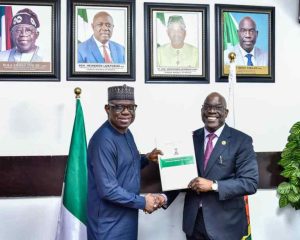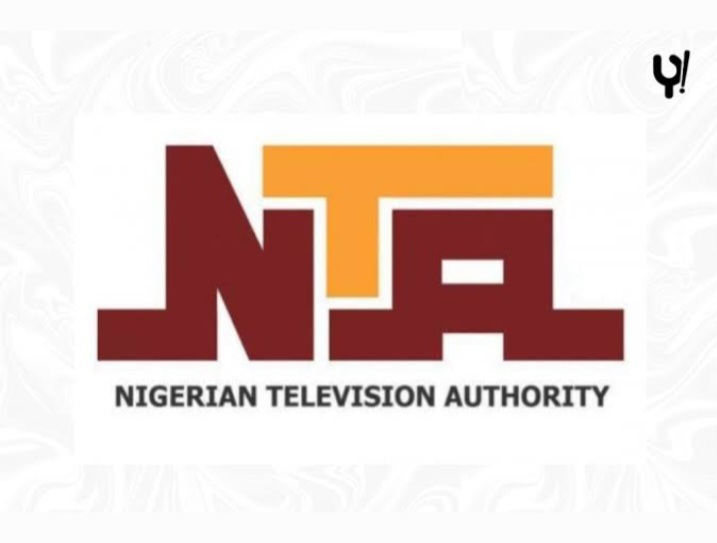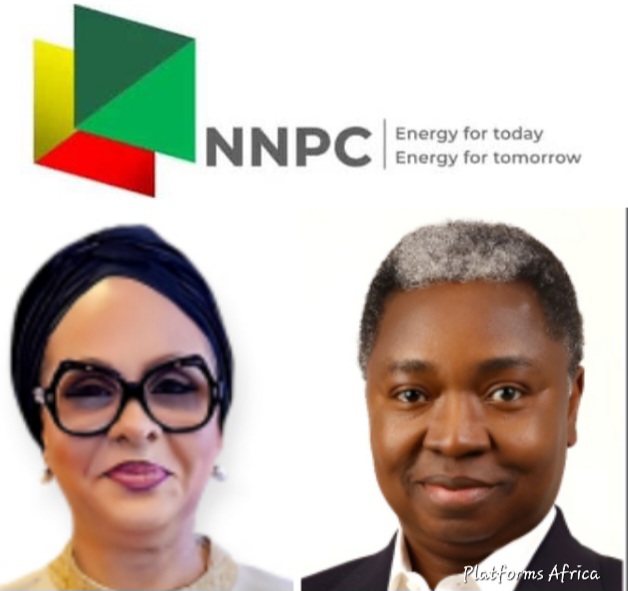“Signature bonus of $10m, a production bonus of two million barrels, and cash equivalents on attainment of 35 million and 100 million barrels,” and-then-what details about what PPLs 2000, 2001 awardees will offer on new PSC deals
The Nigerian Upstream Petroleum Regulatory Commission (NUPRC) has executed the Production Sharing Contract (PSC) with Nigerian National Petroleum Company (NNPC) Limited and the TotalEnergies–and South Atlantic Petroleum (Sapetro) Consortium for two offshore blocks spanning about 2,000 square kilometres in the Niger Delta Basin.
A statement from the NUPRC quoted the Chief Executive of NUPRC, Engr. Gbenga Komolafe to have, at the formal closing ceremony on Monday in Abuja, said that this marked the beginning of a new phase of deep water exploration and investment in the Niger Delta Basin,
According to the statement made available to Platforms Africa, Komolafe explained that the execution of the Production Sharing Contract covering Petroleum Prospecting Licences 2000 and 2001 awarded to TotalEnergies and its partner South Atlantic Petroleum (Sapetro) in the 2024 Licensing Round, marks a new chapter in the nation’s upstream oil and gas industry.
According to him, the award was a direct result of the transparent, reform-driven framework introduced under the Petroleum Industry Act (PIA) 2021.
TotalEnergies with an 80 per cent contractor interest, and Sapetro, with a 20 per cent interest, had emerged successful in what Komolafe described as a “fair, transparent, and competitive bidding process in line with Section 73 of the PIA”
He said: “Today is not just about signing documents; it is about laying the foundation for a future of energy security, investment inflow, and shared prosperity.”
Komolafe noted that Executive Orders 40, 41, and 42, focused on fiscal incentives, local content enhancement, and contract efficiency, respectively, as key enablers of the current investment boom.

“The awardees of PPLs 2000 and 2001 have clearly become beneficiaries of the laudable initiatives of Mr. President. We therefore urge TotalEnergies and other potential investors to take advantage of the enabling fiscal, regulatory, and governance regime in participating in the next licensing round.
“The PSC, developed using a newly standardised template in line with the PIA, lays out clear, fair, and commercially viable terms. These include the payment of signature bonuses and production bonuses tied to commercial milestones, ensuring value to the federation.
“A defined minimum work programme is also included, backed by performance guarantees. Additionally, the contract sets transparent rules for cost recovery and profit oil sharing, as stipulated under the fiscal provisions of the PIA.”
The NUPRC boss added that the contractors were expected to comply with royalty and tax payments, fulfil obligations to host community development, and align operations with the country’s gas commercialisation objectives which includes the treatment of associated and non-associated gas to reduce flaring and ensure optimal utilisation.
“These terms provide certainty for investors, fairness for the Federation, and clarity for all parties,” Komolafe said. We have implicit confidence in TotalEnergies and partners to fulfil these terms within the allowed windows for mutual benefit.”
Komolafe who noted that attracting investors during the 2024 Licensing Round Komolafe was not without difficulty, however added that with presidential approval, the commission implemented a pragmatic solution by introducing minimum signature bonuses as consideration for asset awards.
This move, he explained, brought Nigeria in line with international best practices, following the example of countries such as Thailand, Israel, Guyana, and Brazil, which have shifted away from heavy front-loaded bonuses to more investor-friendly models.
“This helped attract serious investors without front-loading financial burdens,” he added.
He charged the contractors saying, “You are not just investing in Nigeria and our people,” he said, “but in global energy security and in your own bottom line.
“We expect swift implementation of the agreed work programme and strict adherence to decarbonisation principles.
“As a regulator, we remain steadfast in our mandate to enable, promote, and regulate the Nigerian upstream oil and gas sector in a transparent and accountable manner. We will continue to provide a level playing field, reduce uncertainty, and foster ease of doing business.
“The successful execution of this PSC, in alignment with the principles of the PIA, reaffirms that Nigeria is open for business, ready for investment, and committed to leadership in the global energy space,” he declared.
Group Chief Executive Officer of NNPC Ltd, Bashir Ojulari who stated that the PSC was a key focus area for NNPC and Total Energies, added that the PSC was developed in compliance with Section 85 of the PIA and Regulation 23 of the Petroleum Licensing Round Regulation 2022.
While noting that the PSC comprehensively covers both crude oil and natural gas, with robust gas terms that incentivise the monetisation of non-associated gas, he added that it was framed to reflect the nuances of the PIA, the robust multifaceted role of the Commission, and the governance and oversight of the concessionaire.
According to him, the PSC has robust fiscal terms, including a signature bonus of $10m, a production bonus of two million barrels, and cash equivalents on attainment of 35 million and 100 million barrels. These terms enhance the predictability of the PSC while ensuring a good return on investment for the contractor.
Managing Director of TotalEnergies, Mr Mathieu Bouyer outlined the company’s plans to progress swiftly and responsibly with the implementation of the agreed work programme.
He stated that Total was actively working towards spudding its first well on the blocks in the shortest possible time frame.
Platforms Africa





